“I look at my role as being a friend of Canberra Hospital, I can bring some pleasure and happiness sometimes to people who are really in difficult times in their lives.”
With backing music from a Bluetooth speaker, Sayer croons his way around the cancer wards, making a human connection with everyone he comes across.

Canberra Region Cancer Centre Operations Manager Caroline McIntyre says Sayer’s visits are typically kept a surprise for patients and staff.
“He’s always come in so discreetly,” she says.
“Normally it’s just very quiet, he comes up in the back lift and says hello to literally everybody.
“Some of them are doing it tough, and to have a little bit of joy and light – it really gives them a lift.
“What makes me happy is to see people getting chemo on their feet dancing.”
Jamming with Jimi Hendrix, Countdown and the Troubadour
Originally a graphic designer by trade, English-born Leo Sayer rose to pop prominence in London in the late 1960s, as a singer-songwriter – and was soon adopted by Australia as an honorary son after his first tour here in 1974.
He went on to become an Australian citizen in 2009.
Sayer was a regular on ABC TV’s Countdown during the 70s and 80s, performing chart-toppers like “You Make Me Feel Like Dancing”, “When I Need You”, “More Than I Could Say” and “Orchard Road”.

He blushingly admits they were wild days – when he didn’t always live up to his “good-guy” public persona.
“It was mad, I mean, Top of the Pops in England, Countdown over here,” he says.
“You were mobbed by the fans, I remember being dragged out of a limousine the first tour that I came here, and then speaking to crazy people like Molly Meldrum on TV and trying to sort of like take it all in.”
It seems hard to believe – the petite, well-spoken singer, with a mane of curly hair that inspired changing his name from Gerard to Leo – beating off mobs of screaming fangirls.
Sayer circulated in superstar company, becoming close friends with former Beatles George Harrison and Paul McCartney, collaborating with Roger Daltrey of The Who, and even sharing a sly cigarette or two with John Lennon and Yoko Ono who had a flat above his design studio.
“I met Jimi Hendrix right at the start of his career. I actually jammed with him, playing the harmonica, and him playing the guitar,” he says.
Recalling his 1975 opening night at the famous Troubadour Club in Los Angeles, he looked up to see an intimidating line-up of fans in the front row.

“It was David Bowie, Elton John, and ‘The Fonz’ [Henry Winkler].”
Alongside them: John Cleese, Mick Jagger, Bernie Taupin, and comedian Marty Feldman.
“We never thought it would last, we were adapting to things around us, writing songs about things that are around us,” he says.
“And we thought they were only for our generation — so the amazing thing is my music’s become like a fine wine, where you lay it down and years later, it becomes a collector’s item.
“We’re in an age where the music that I make, young kids are actually latching onto it now, and they’re finding that that generation and that style of music we made is as current now as anything.”
Sayer’s health battles, still spreading hope at 76
Leo Sayer says his hospital charity work caps off a career dedicated to providing joy through music.
“It’s a nice piece of synchronicity really, because I was born in the grounds of a hospital in Shoreham by Sea in Sussex, near Brighton in England,” Mr Sayer said.
“I suppose I’ve always felt comfortable in hospitals and being around hospitals.
“Growing up, my dad was a hospital engineer, Mum was a nurse, my sister was a matron.”
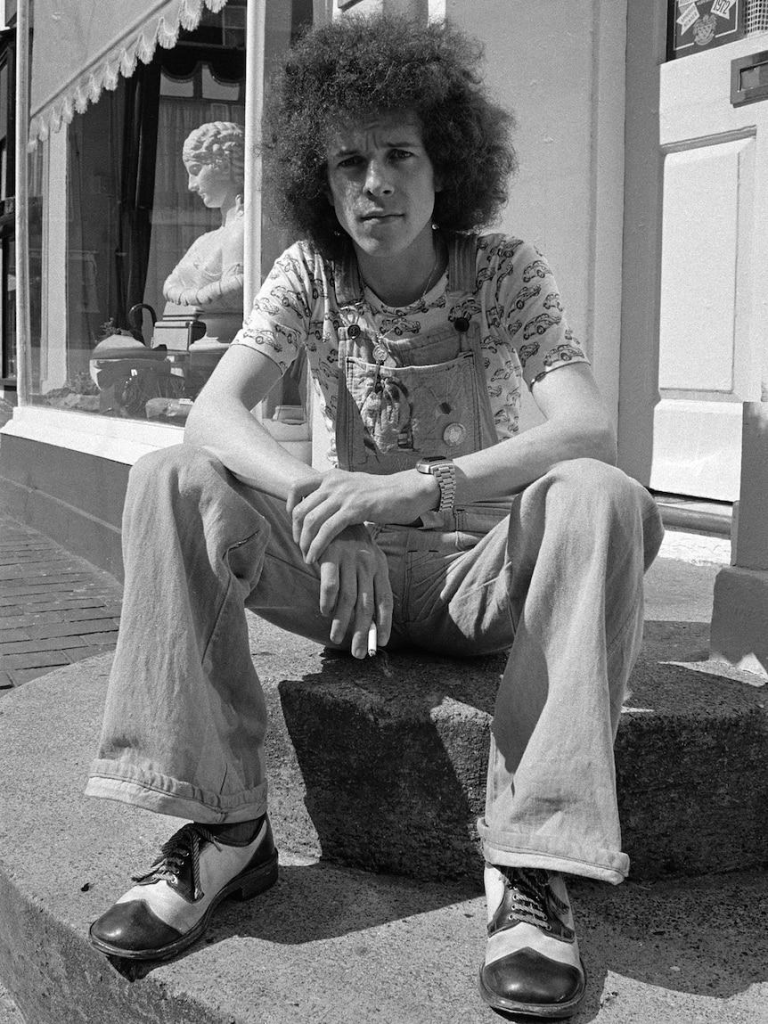
Sayer has health struggles of his own, including three stents in his heart, which help him have a genuine connection to the hospital patients he entertains.
“[My music] is providing something that isn’t taking away from any of the treatment that’s going on. It’s providing something that’s just putting a smile on peoples’ faces.
“Music is communication and that’s what this is all about, we’re communicating, we’re making people feel better.
“We’re not healing people with music, but we are making them feel better about their healing.
“To sell out Canberra Hospital will do me fine.”
My Brother Forbade Me from Giving the Speech at Our Mom’s Funeral Because ‘No One Wants to Hear from the Adopted One’
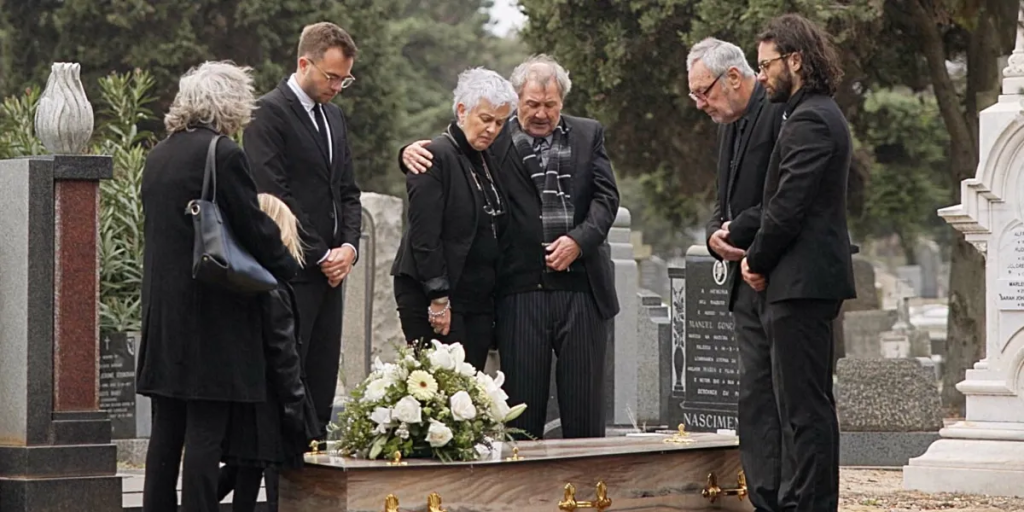
Have you ever had someone try to erase you from your own story? To tell you that the love you lived wasn’t real enough? That’s what happened when my brother decided I wasn’t family enough to say goodbye to our mother.
The house feels so empty now. I walk through rooms that still smell like her lavender hand cream and expect to hear her voice calling from the kitchen. It’s been two weeks since we lost Mom to ovarian cancer, and the hollow feeling in my chest has only grown deeper with each passing day.
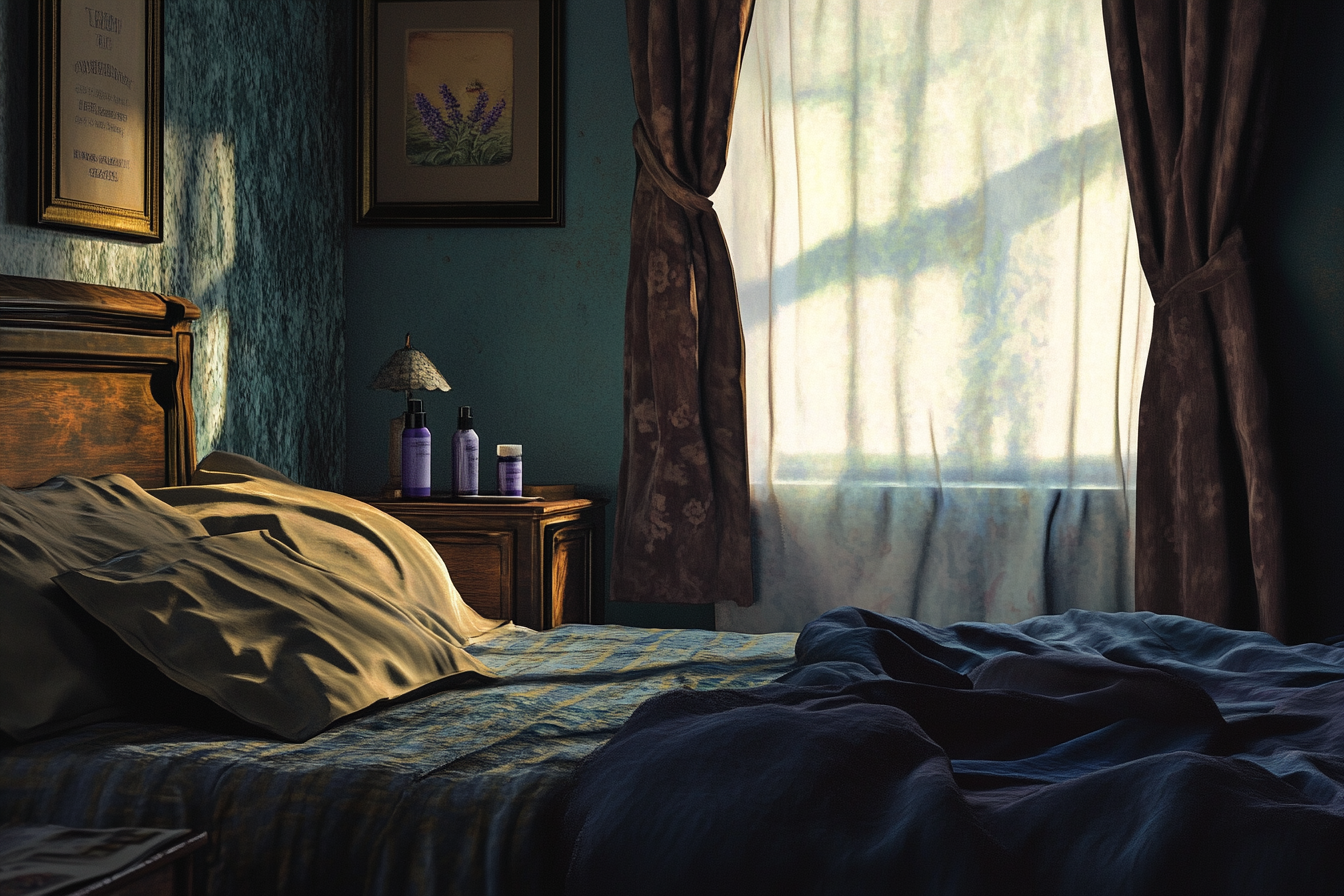
A bedroom | Source: Midjourney
“Emily, honey, are you eating?” My aunt Susan calls twice a day to check on me. “Your mother would want you to take care of yourself.”
I manage a weak “yes” even though the refrigerator is filled with untouched casseroles from well-meaning neighbors. Food tastes like nothing these days.
Mom was everything to me, and it’s not just because she chose me. Well, that part matters too.
I was five when she and Dad adopted me, a scared little girl with a too-big backpack and trust issues that ran bone-deep.

A little girl standing outside a house | Source: Midjourney
They already had Mark, their biological son, who was eight and blessed with Mom’s dimples and Dad’s confident smile.
“This is your sister,” Mom had told him, her hand warm on my shoulder.
“And this is your forever home,” she’d whispered to me later that night when I couldn’t sleep.
Those weren’t just words. She lived them. Every single day.
Dad was wonderful too. He was patient and kind and taught me to ride a bike.

A man helping his daughter ride a bike | Source: Pexels
But when he passed away from a heart attack eight years after I came home, it was Mom who became my entire world. She showed up to every dance recital with flowers, stayed up late helping with science projects, and held me through my first heartbreak at 16.
“Blood doesn’t make a family,” she would say whenever anyone made thoughtless comments about adoption. “Love does.”
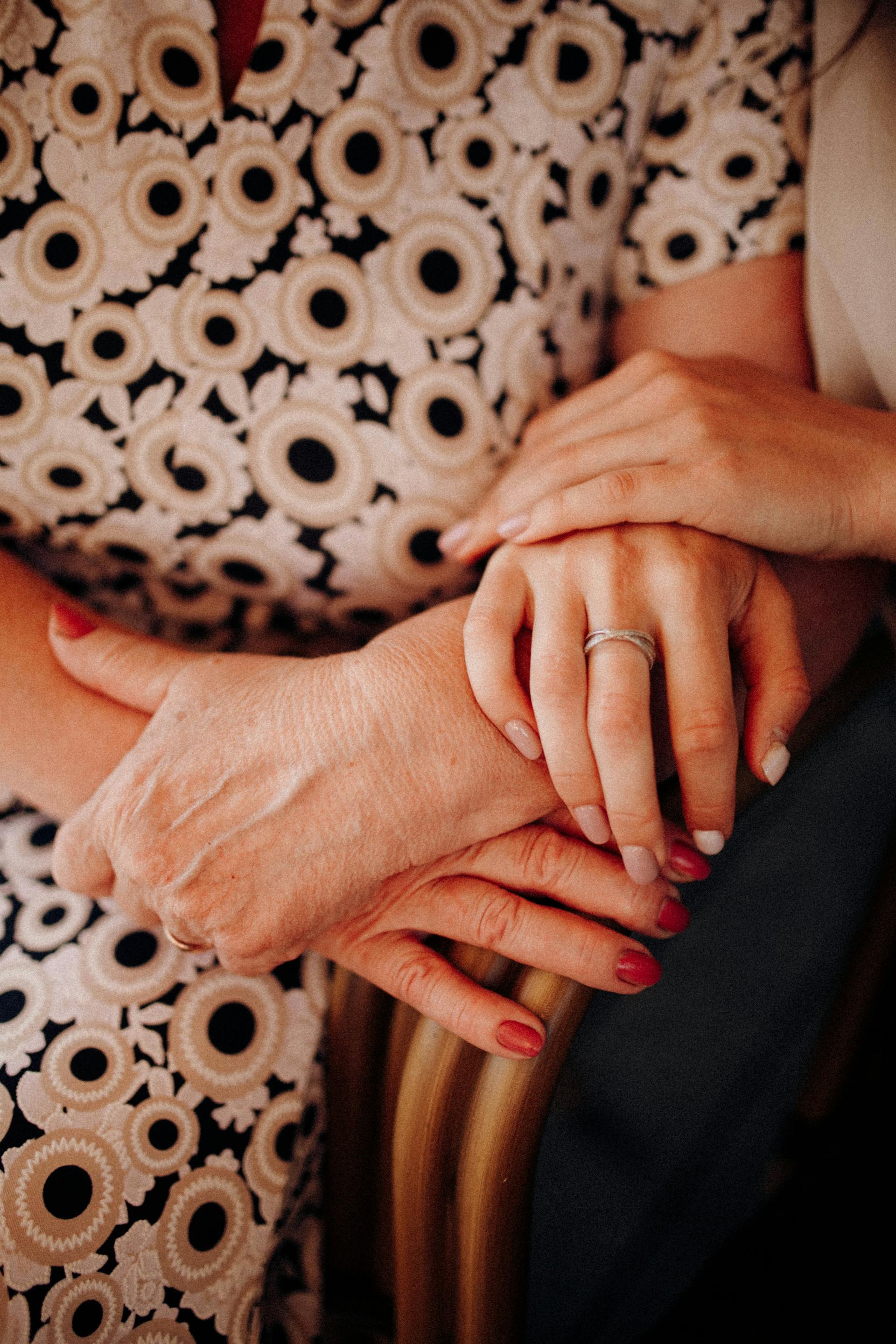
A woman holding her mother’s hands | Source: Pexels
We were inseparable, especially after I graduated college.
I took a job at a design firm just 20 minutes from her house because I couldn’t imagine being far away. Weekend brunches, impromptu movie nights, holiday traditions… we did it all together.
Then the diagnosis came. Ovarian cancer, stage three.
“We’ll fight this,” I promised her in the sterile hospital room where the doctor had delivered the news, his eyes already carrying a resignation that terrified me.

A doctor | Source: Pexels
For two years, that’s exactly what we did.
Two years of chemo, of doctors who never made eye contact, of late-night ER visits and pain that stole her voice, piece by piece.
And through all of that? I was there. Every. Single. Day.
I moved into her house. Cooked every bland meal that wouldn’t make her sick. Helped her bathe when her body failed her. Sat beside her in the hospice while her hands trembled in mine.
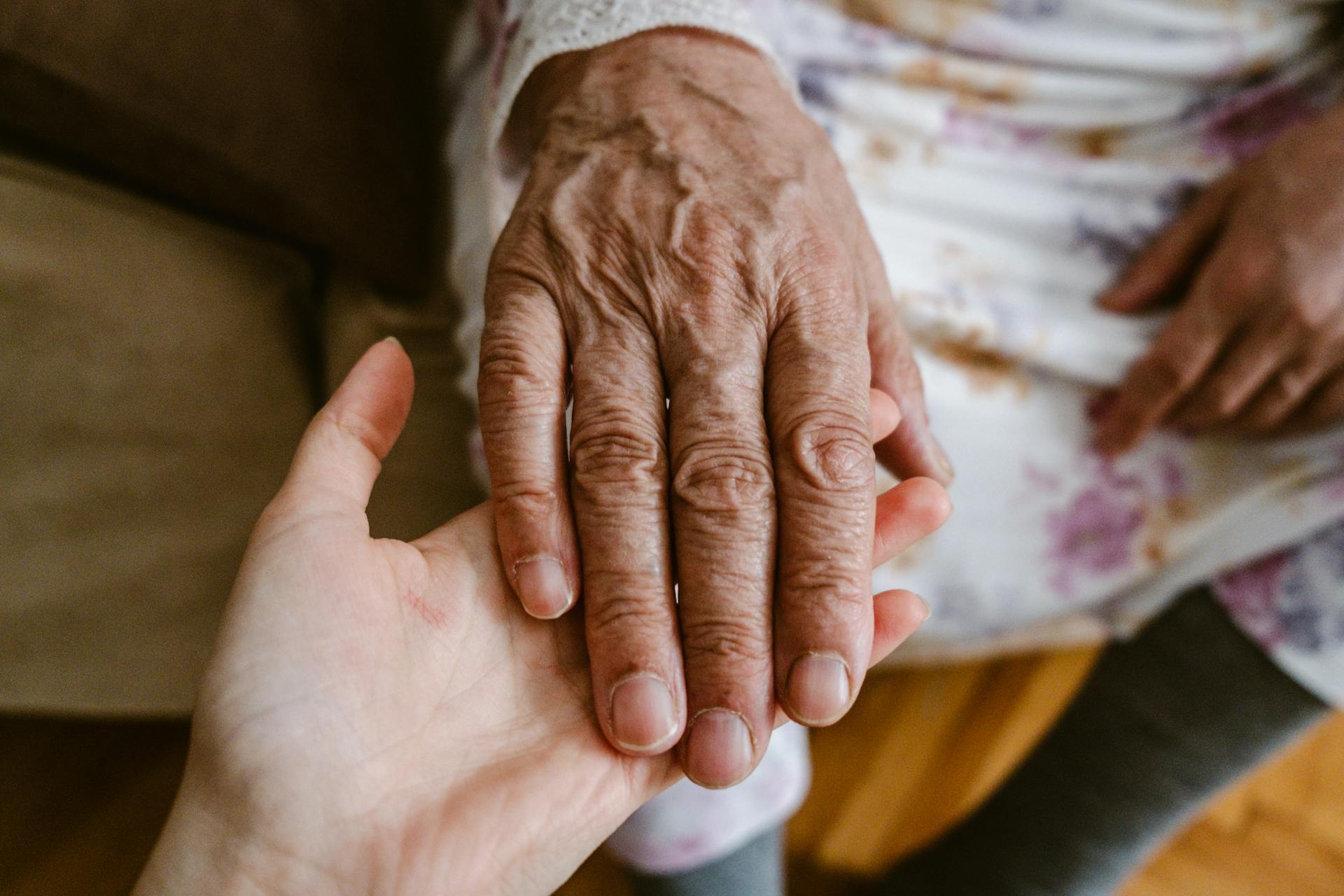
A woman holding her mother’s hand | Source: Pexels
And Mark? He only visited twice.
Once for her birthday, bringing an expensive bouquet that made Mom smile despite the pain medication making her drowsy.
Once for five minutes after she was moved to the hospice. Just long enough to say, “I can’t handle seeing her like this” and leave.
He lived three hours away in Chicago. Had a successful career in finance. A beautiful wife. Two kids Mom barely knew.
But that’s not why he didn’t show up. It’s because he didn’t want to.

A close-up shot of a man’s face | Source: Midjourney
And still, I never held that against him. Mom didn’t either.
“Everyone grieves differently,” she would say on nights when disappointment made her eyes shine with unshed tears after he canceled yet another visit. “Mark just needs time.”
But time was the one thing she didn’t have.
The morning of the funeral dawned cold and clear. It was the kind of beautiful autumn day Mom would have loved.
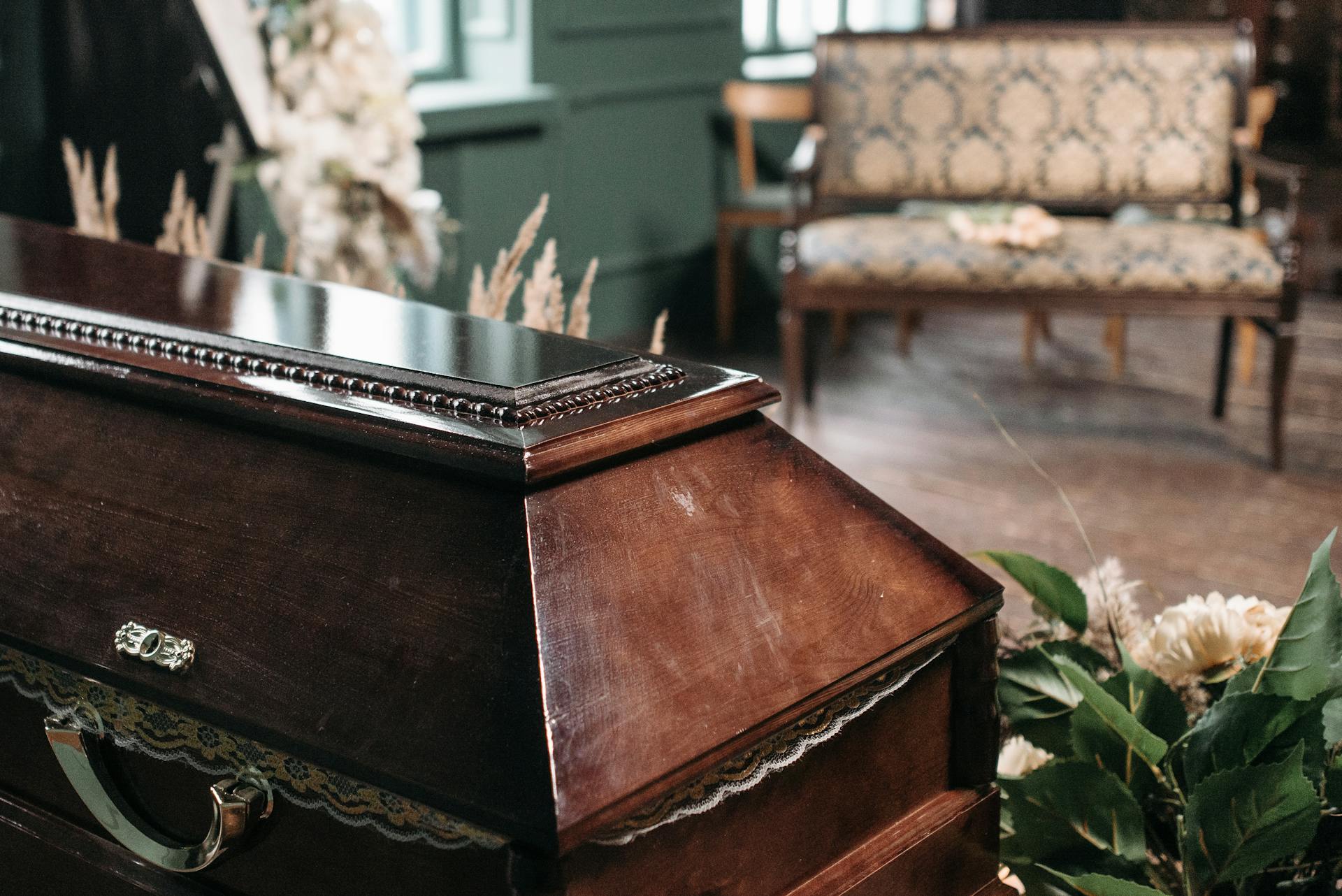
A coffin | Source: Pexels
I stood in front of the mirror in her bathroom, smoothing down the navy blue dress she’d helped me pick out months before.
“This one,” she’d said. “You look so beautiful in this one, honey.”
The memory made my throat tighten. I tucked the folded pages of my speech into my purse, the paper worn soft from how many times I’d revised it.
It wasn’t just a eulogy. It was a goodbye. A thank-you. A love letter to the woman who chose me, who taught me what family really means.
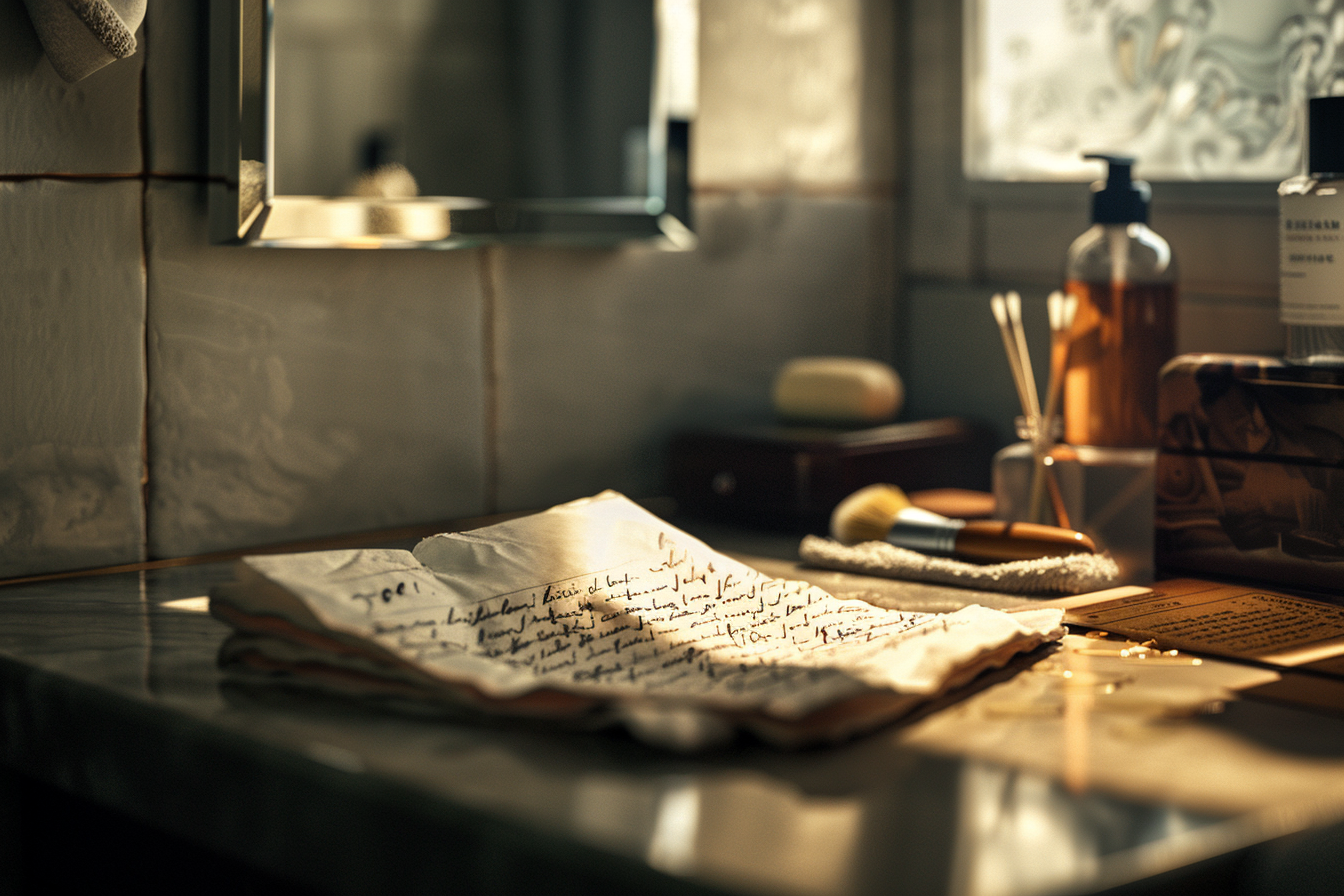
A handwritten note | Source: Midjourney
“Emily? The cars are here.” My aunt Susan knocked gently on the bedroom door. “Are you ready, sweetheart?”
No. I would never be ready. But I nodded anyway.
The church was already filling when we arrived. Mom had been loved by so many people, including her book club friends, neighbors, former colleagues from the elementary school where she’d taught second grade for 30 years.
I greeted them in a fog, accepting hugs and condolences that blurred together.
I spotted Mark near the front, standing with his wife Jennifer and their children.
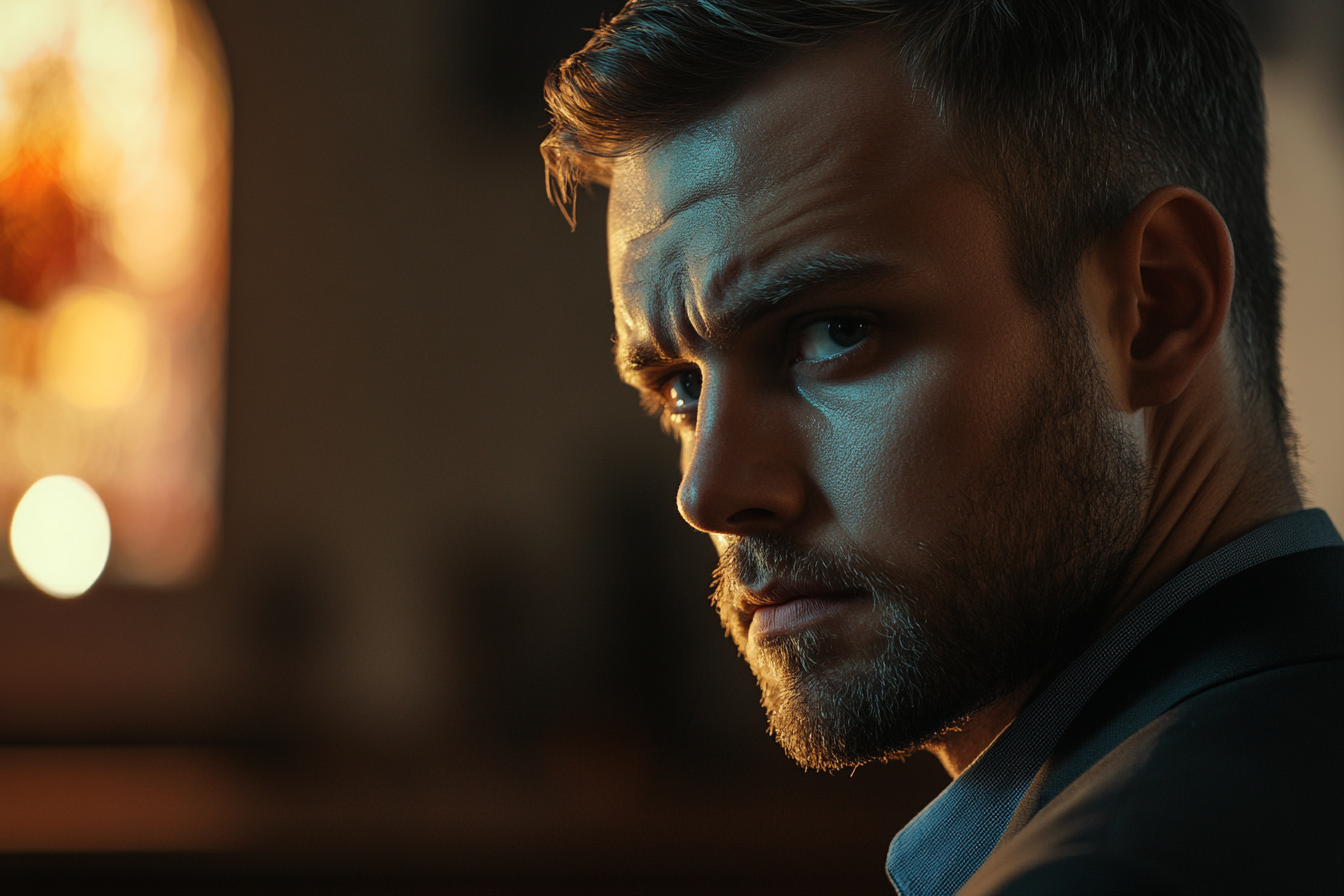
A man standing in a church | Source: Midjourney
He looked like he’d aged years in the weeks since Mom died. We hadn’t spoken much during the arrangements. He’d delegated most decisions to me with brief, perfunctory texts.
“Emily.” He nodded when I approached. “The, uh, the flowers look nice.”
“Mom loved lilies,” I said softly. “Remember how she always planted them along the front walk?”
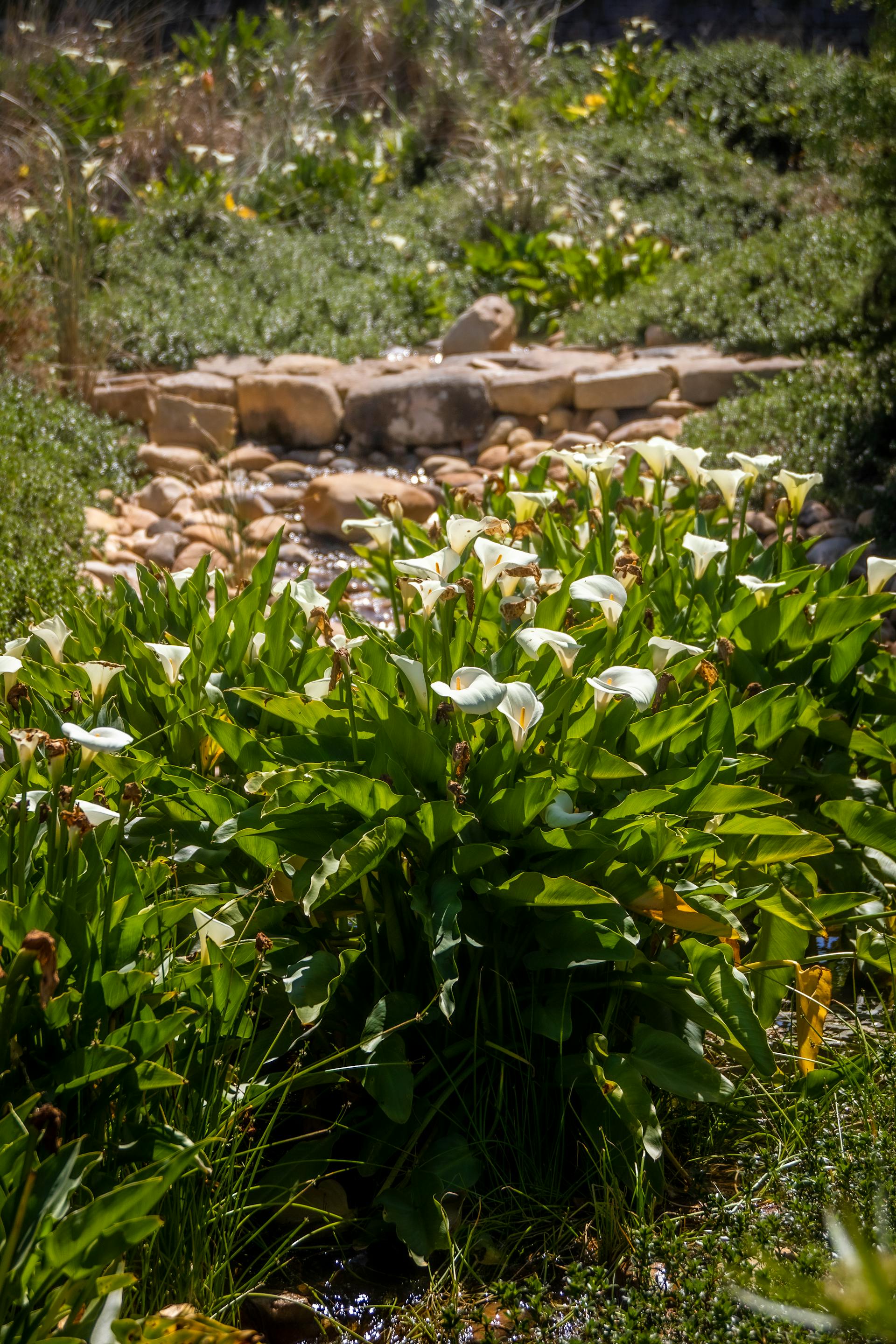
White lilies in a garden | Source: Pexels
He looked away, uncomfortable with the shared memory. “Yeah.”
Pastor Wilson was preparing to begin the service when Mark suddenly pulled me aside near the church steps, away from the gathering mourners.
“Hey,” he said, voice tight, “You should sit this one out.”
I blinked, not understanding what he meant. “What?”
He glanced around like he didn’t want anyone to hear, and then said the words I wasn’t ready for.
“No one wants to hear from the adopted one. The speech should come from real family.”
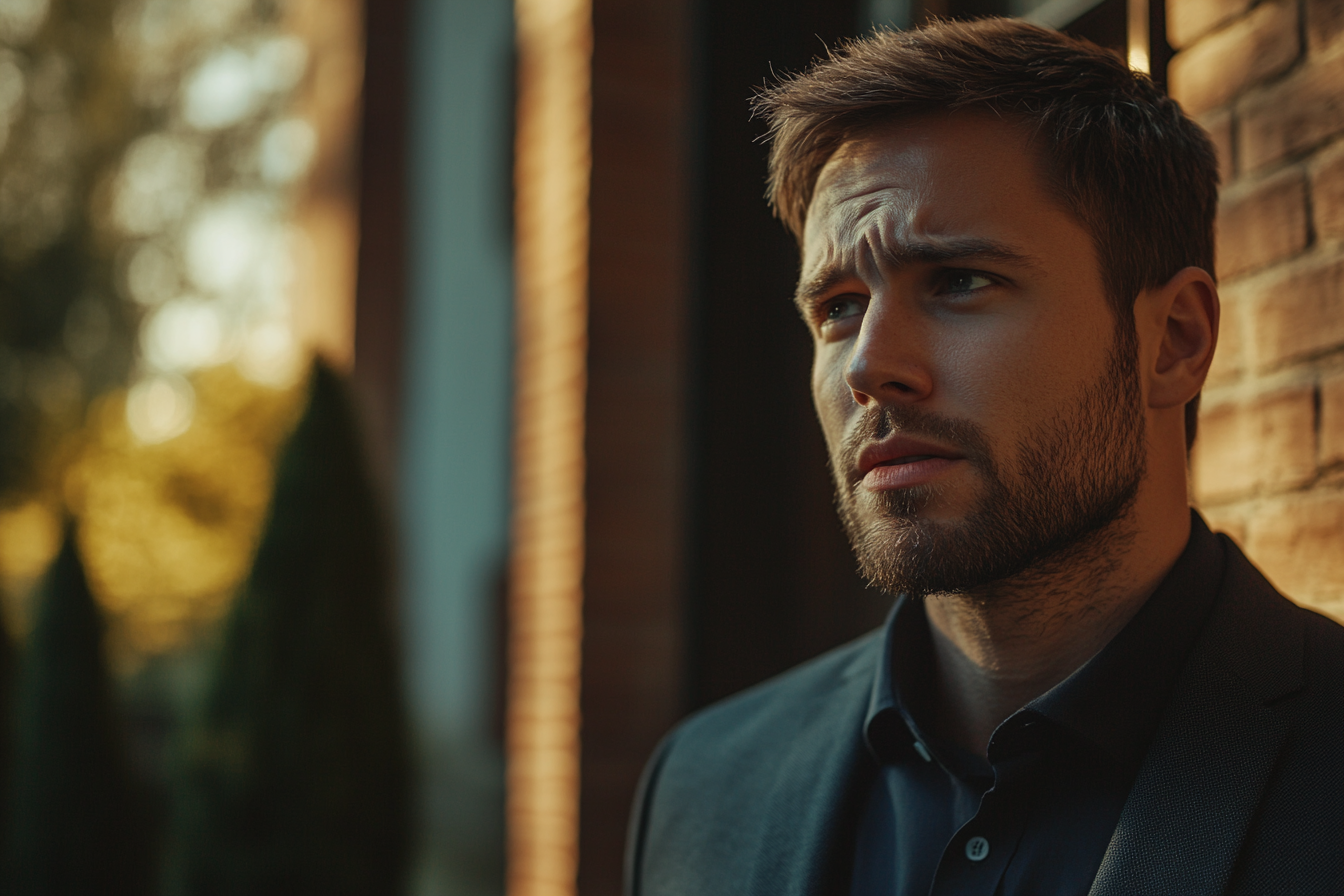
A man looking at his sister | Source: Midjourney
Adopted.
I felt the blood drain from my face. The church, the people, everything around me seemed to fade away as his words echoed in my head.
He’d never said that word before. Not even when we were kids fighting over toys or the front seat of the car. Mom and Dad had never allowed any distinction between us.
We were both their children. Period.
I opened my mouth to respond, to remind him of all the nights I’d spent holding Mom’s hand while he was absent. All the doctors’ appointments I’d driven her to. All the medications I’d carefully organized in daily pill cases.

Pills in a pill organizer | Source: Pexels
But then I saw his clenched jaw. The way he’d already decided. The grief that was making him cruel.
So, I nodded.
“Fine,” I whispered. “Whatever you want, Mark.”
***
He gave his eulogy. It was fine. Generic. A few stories from childhood and some lines about “how much Mom meant to all of us.
People clapped politely when he finished.
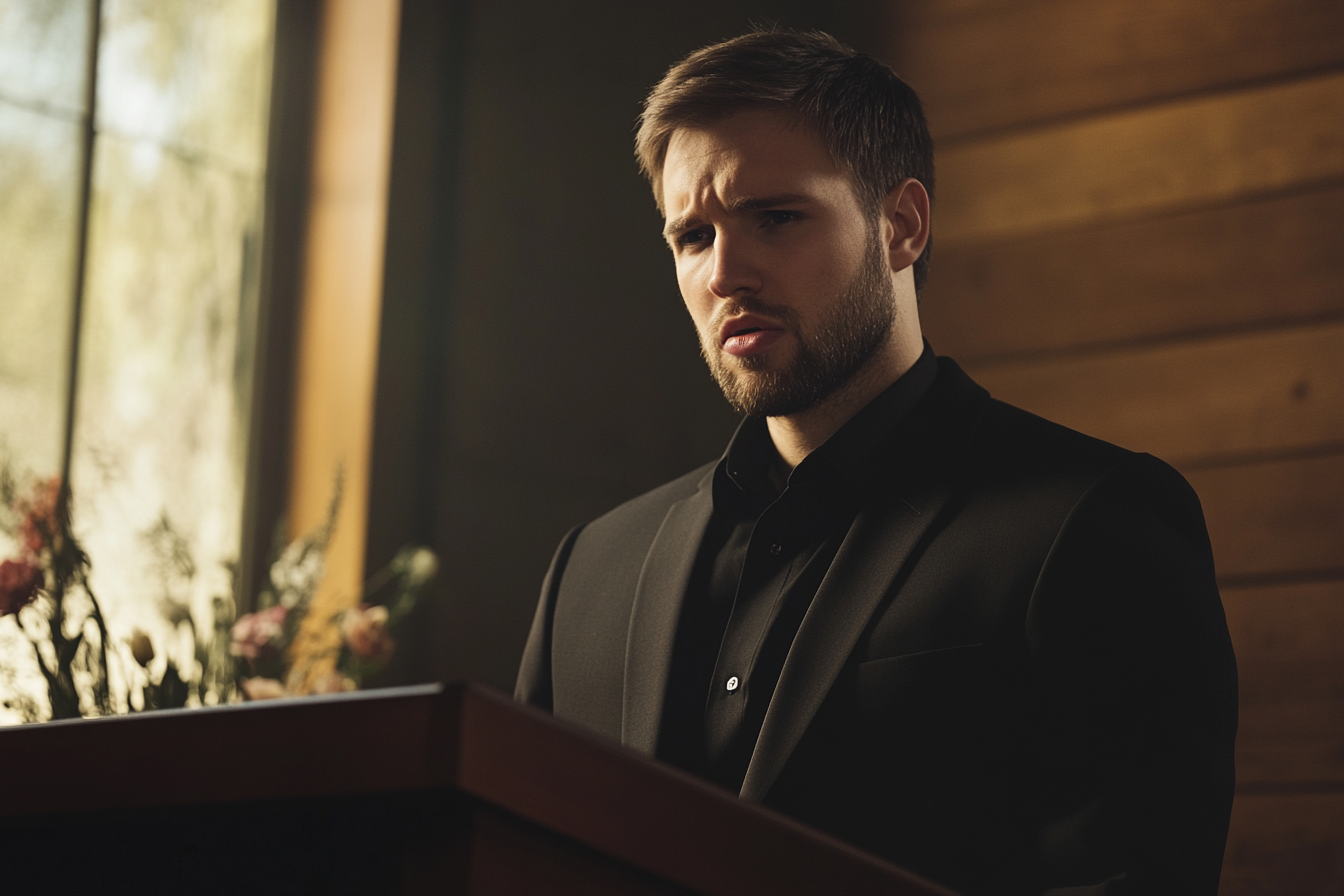
A man giving a speech | Source: Midjourney
I sat in the front pew, tears streaming silently down my face. The speech I’d written burned a hole in my purse. All those words I’d carefully chosen to honor her were now silenced.
As Mark stepped down from the podium, one of the hospice volunteers, Grace, walked over and handed him an envelope.
“Your mother wanted you to have this,” she said, loud enough for the front rows to hear.
Mark looked confused but took the envelope.
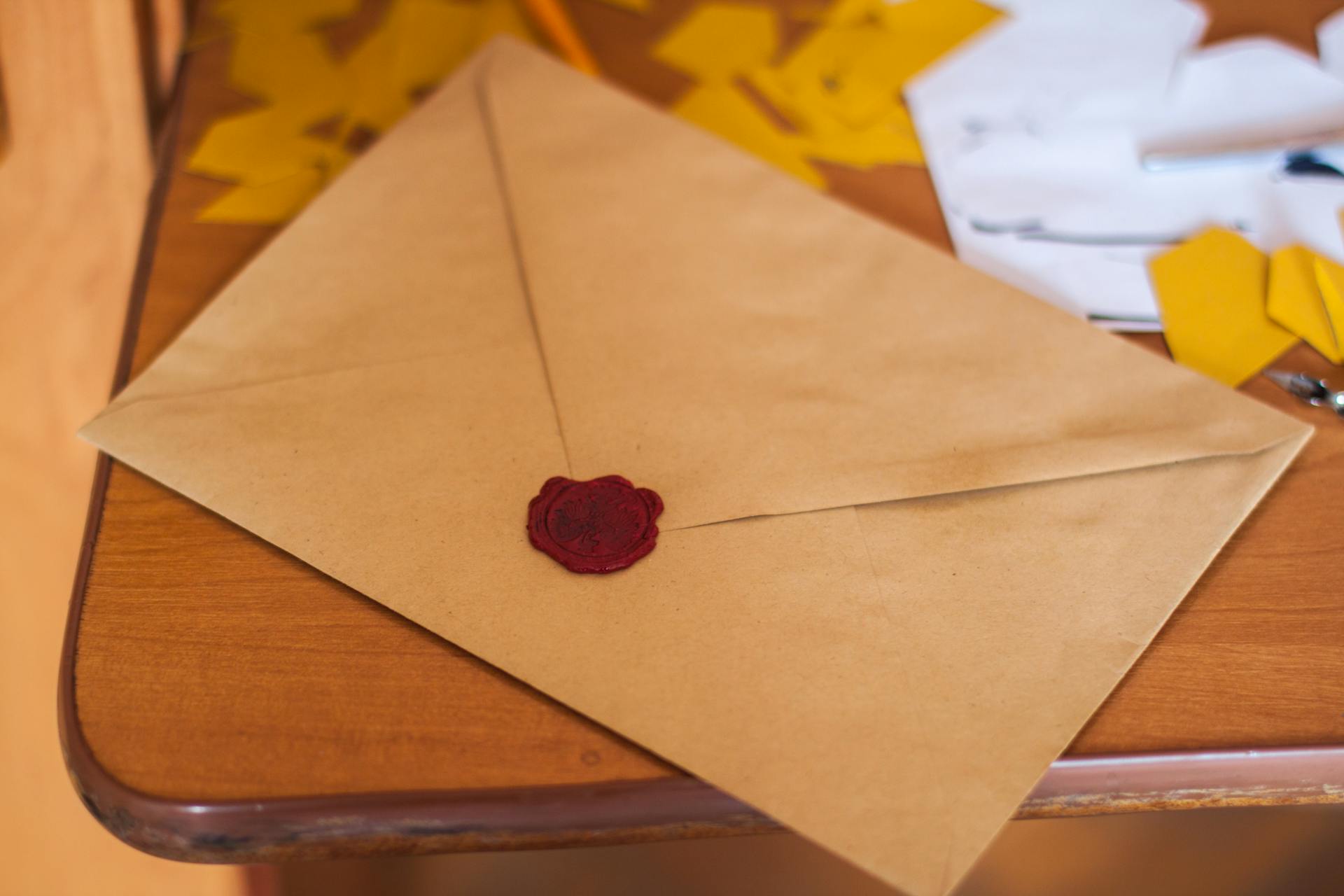
A sealed envelope | Source: Pexels
He opened it at the podium, unfolding a sheet of pale blue paper that Mom always saved for important letters.
I watched his hands tremble as he read the contents. He cleared his throat once. Then twice.
Then, he began to read aloud.
“To my children, Mark and Emily. Yes, both of you. Blood makes children related. Love makes you mine.”
A sob caught in my throat.
“Mark, you were my first. My wild child. The one who never stopped running. Emily, you were my answered prayer. The soul who chose to come to me in a different way, but just as deeply.”

A woman putting a note in an envelope | Source: Pexels
The church was completely silent now.
“Emily, I hope you kept the words I helped you write. Because they’re my last ones, too.”
Mark looked up from the letter, his face transformed by shame and grief. His eyes found mine across the sanctuary.
“Please,” he said, his voice breaking. “Come up here. I’m sorry.”
I stood on shaky legs, aware of every eye in the church following me as I walked to the front.

A woman walking in a church | Source: Midjourney
My hands trembled as I unfolded my speech.
Mom had helped me draft it during those quiet hours between pain medication doses, when her mind was clear and we talked about everything and nothing.
I took a deep breath and began to read the words we wrote together.
I told them about her courage. Her kindness. The way she could make anyone feel like the most important person in the room. How she taught second graders to read for three decades and still got Christmas cards from students now in their 40s.
And how she made the best apple pie in three counties, but would never share her secret ingredient.

An older woman smiling | Source: Midjourney
And I told them what she taught me about family.
That it’s built by choice, by love, and by showing up day after day.
When I finished, the church was filled with both tears and smiles. That was exactly what Mom would have wanted.
Afterward, people lined up to hug me. To tell me how beautiful it was. How Mom would’ve been proud. Her book club friends sharing stories I hadn’t heard before. Her fellow teachers reminiscing about staff room pranks and school trips.
Mark pulled me aside before I left the reception.
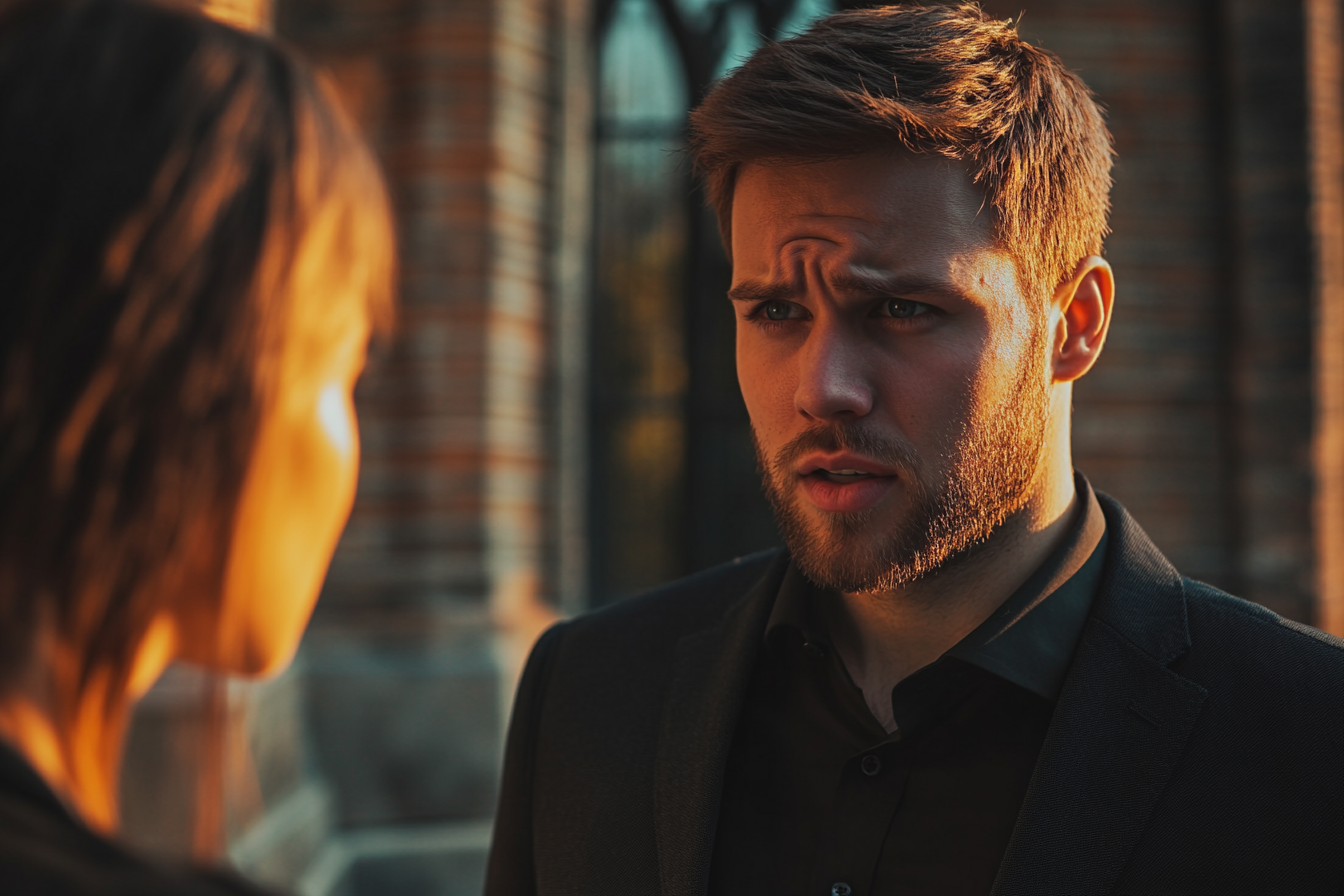
A man talking to his sister | Source: Midjourney
“I was wrong,” he said, looking directly at me for perhaps the first time in years. “About everything.”
I nodded. “I know.”
We stood there, in silence. Not the kind that erases you. The kind that makes space for healing.
“You know what, Mark… She loved you so much,” I finally said. “She never stopped hoping you’d come around.”
His eyes filled with tears. “I… I should’ve been there for her. I wasted so much time.”

A man looking down | Source: Midjourney
“Then don’t waste any more,” I told him, thinking of Mom’s most frequent advice. It’s never too late to start over.
And I realized something as we walked back into the reception together. I didn’t need the podium to prove I was her daughter. She’d already said it herself. Louder than anyone else ever could.



Leave a Reply